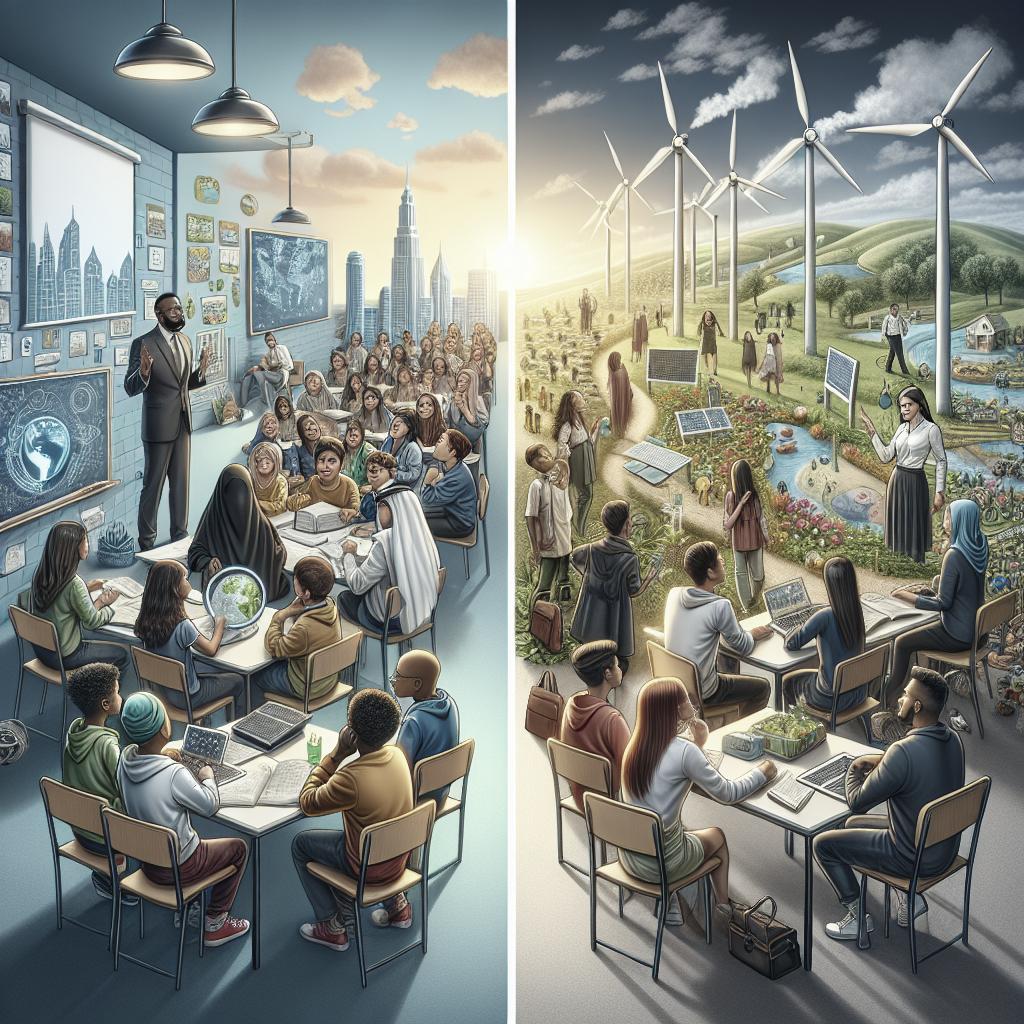“`html
The Role of Education in Promoting Sustainability
Sustainability has become a pressing issue in today’s world, with education playing a pivotal role in addressing environmental challenges. Education not only molds individuals’ understanding of sustainability but also empowers them to take meaningful action. Through awareness-building and knowledge dissemination, education promotes behavioral change and fosters a connection to the natural world. This blog post explores how education creates informed citizens equipped with the skills and awareness necessary to engage in sustainable practices, encouraging a sustainable future. It delves into the essential role education plays in understanding complexities surrounding sustainability, empowering individuals with the knowledge and skills to initiate change, influencing behavioral transformation, and nurturing a deep connection with nature.
Creating Awareness and Understanding
Education serves as a foundational tool in cultivating awareness and understanding of sustainability issues. By integrating topics such as climate change, resource depletion, and conservation into curricula, students gain an awareness of the pressing environmental challenges the world faces today. This understanding is crucial in forming a well-rounded perspective on how individual and collective actions impact the environment.
In schools and universities, comprehensive education programs focus on equipping learners with the knowledge needed to explore sustainability issues critically. This involves teaching students to analyze the intricate balance between economic development and environmental conservation, thus fostering an informed understanding of global challenges. With this knowledge, students are better prepared to engage in conversations about sustainability and contribute to societal change.
Empowerment Through Knowledge
Knowledge empowers individuals to make informed decisions that contribute to sustainability. Educational institutions play a vital role in providing students, educators, and the public with access to relevant information and tools for sustainable development. By integrating sustainability into various disciplines, education equips learners with the ability to identify innovative solutions to complex environmental problems.
A curriculum that stresses critical thinking, problem-solving, and interdisciplinary approaches equips students with the skills to address sustainability challenges creatively and effectively. Empowered with knowledge, learners can contribute to the creation of sustainable technologies, develop policies that promote environmental stewardship, and advocate for sustainable practices in their communities.
Behavioral Change for Sustainability
Education can serve as a catalyst for behavioral change, encouraging individuals to adopt sustainable habits. By promoting an understanding of the environmental impacts of human actions, education guides students toward making conscious choices that benefit both the planet and future generations. Schools and universities create environments that support sustainable behaviors, from energy conservation practices to waste reduction initiatives.
Moreover, education initiatives that involve community engagement often lead to greater awareness and active participation in sustainability efforts. Such programs inspire individuals to take action, fostering a sense of responsibility and accountability. By emphasizing the impact one person can have, education encourages scalable changes in behaviors that cumulatively contribute to sustainable development.
Fostering a Connection to Nature
One of the significant roles of education in promoting sustainability is nurturing a deep connection with the natural world. Through nature-based learning, educational institutions provide hands-on experiences that help students appreciate the beauty and importance of the environment. These interactions offer firsthand insights into ecological processes and their significance in maintaining a balanced ecosystem.
When students develop a profound connection with nature, they are more likely to be conscious of their actions and the impact they have on the planet. Environmental education programs, outdoor classrooms, and field trips encourage students to value and protect natural resources. By fostering a lifelong appreciation for nature, education ensures a lasting commitment to sustainability.
Lessons Learned
| Aspect | Role of Education |
|---|---|
| Creating Awareness | Incorporates sustainability topics into curricula to foster understanding of environmental challenges. |
| Empowerment Through Knowledge | Provides critical thinking and problem-solving skills to enable innovative solutions for sustainability. |
| Behavioral Change | Encourages the adoption of sustainable habits and engagement in community-led initiatives. |
| Connection to Nature | Facilitates nature-based learning experiences to nurture a deep appreciation and commitment to protecting the environment. |
“`
